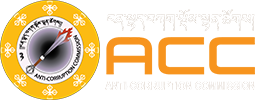International Anti-Corruption Day (IACD)
It is a global observance held every December 9th. It was established in 2003 by the United Nations General Assembly to raise awareness about the negative impact of corruption on societies and economies worldwide.
Corruption is a complex social, political, and economic phenomenon that undermines the rule of law, democratic institutions, and human rights. It erodes public trust in government, contributes to poverty and inequality, and hinders economic development by distorting market competition and increasing the cost of doing business.
To mark IACD, governments, civil society organizations, and citizens around the world engage in various activities, such as anti-corruption conferences, seminars, campaigns, and awareness-raising events. These initiatives aim to promote a culture of integrity, encourage whistleblowers to speak up, strengthen anti-corruption laws and institutions, and empower citizens to demand accountability from their leaders.
In conclusion, International Anti-Corruption Day is an opportunity to reflect on the challenges and opportunities in the fight against corruption and to renew our commitment to promoting transparency, accountability, and good governance. Since its initiation, Bhutan has also been observing day under different programs and with various stakeholders. In total, there has been 19 IACDs with various themes and programs have been aligned to commemorate the day with respective themes.
